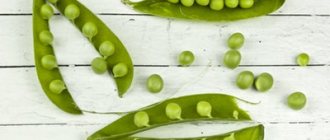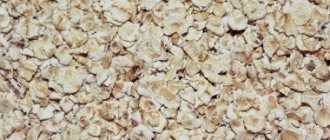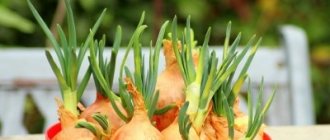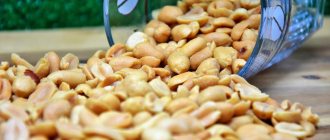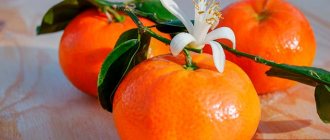Someone might be amused by a dog happily crunching an apple or plucking a berry bush in their garden plot. But this is not surprising, because fruits and berries for a pet are a natural dessert and a valuable source of vitamins. To pamper your pet with a healthy treat, you should find out what fruits dogs can eat.
Do you need fruits in your diet?
Today, domestic dogs are fed mainly industrial food. Despite this, the benefits of natural sources of vitamins, microelements, glucose, and fiber can hardly be overestimated. Even the most nutritious, balanced food cannot fully satisfy this need. The dog is the ancestor of wild wolves, an omnivore. And in nature, wild animals always eat fruits that fall from trees or feast on wild berries.
Fruits and vegetables are a natural source of nutrients. If your pet begins to show a strong interest in living plant foods, this is a reason to think about a possible lack of some microelements or vitamins in his body. In order to diversify and replenish the existing diet, you need to know which common fruits can be beneficially and safely given to dogs to eat, and which ones are undesirable or even prohibited.
Small breeds
Small breeds require special treatment: various poisons and allergens affect them much more strongly. If a huge Alabai calmly swallows a couple of unhealthy pieces of fruit and ends up with an upset stomach, then the Chihuahua can be seriously poisoned, even fatally.
Therefore, you should choose 100% safe fruits for them, feed them in small pieces and avoid getting crusts and seeds. Let’s stipulate: a “small piece” for a dog weighing 1.5-2 kilograms is a piece the size of half a finger.
There is an opinion that only apples are allowed for small dogs. In any case, “controversial” fruits like bananas or plums should not be included in their diet.
Allowed fruits and their benefits
- Green apples are the safest and most accessible fruit. Excellent supplier of vitamin C and fiber. Improves digestion and is an ideal treat for older dogs due to its low fat and protein content.
- Pears practically do not cause allergies and help reduce the risk of stroke. You need to give preference to hard varieties.
- Bananas are a source of potassium. But you need to avoid overripe fruits, which can cause digestive upset. And due to the abundance of sugar, it is not advisable to give it to dogs too often.
- Dogs can eat plenty of watermelons grown without the use of nitrates and various accelerators. Due to their composition, they are an additional source of water for the body in the hot summer. A side effect is frequent urination.
- Pineapples are rich in an enzyme that helps digest proteins - bromelain. Great as a dessert.
What's not allowed?
The following foods should never be given to your pet:
- chocolate;
- grapes or raisins;
- avocado;
- sugar;
- cookies, candies and other sweets;
- baked goods;
- smoked meats;
- pickles;
- sausages;
- pork;
- mayonnaise and products with it, for example, salads;
- spices;
- spicy dishes;
- ketchup;
- carbonated drinks;
- alcohol.
CAREFULLY!
You should not give your dog tubular bones, as well as chicken feet or any boiled bones in general, as this can lead to perforation of the esophagus or intestines.
It is possible, but very carefully
As a rule, exotic fruits pose a danger. Imported fruits brought from afar are treated with various chemicals before long transportation in order to maintain a beautiful presentation and protect against parasites.
Under no circumstances should you buy impeccable and perfect-looking imported fruits for pet food.
It should be understood that such products are brought to a beautiful state artificially, using toxic substances.
- “Slippery” fruit varieties such as melon, kiwi or plums stimulate intestinal motility and can cause diarrhea.
- A slice of pitted and peeled papaya, on the contrary, cures a slight upset stomach. But with frequent use, it increases blood sugar and contributes to the development of diabetes.
- Persimmon can also normalize broken stools. But it contains tannins in large quantities. Frequent use can lead to constipation.
- Peaches, peeled, are acceptable in small quantities. They are a good source of vitamin A.
Be sure to remove the pits before eating - they are poisonous to dogs due to their cyanide content.
The same caution applies to apricots. In addition, these fruits can weaken and can cause severe diarrhea, especially in puppies.
Breed exceptions
Of course, in some large breed dogs that are not prone to various allergic reactions, a small amount of fetus is more likely not to cause any stomach problems.
But there are species that are more susceptible to allergic reactions. These include terriers, retrievers, flat-faced dogs and setters. Therefore, it is advisable not to give pomegranate to representatives of these breeds at all.
the Forbidden fruit
Separately, it is necessary to highlight those fruits that are strictly contraindicated for dogs:
- Grapes are the most toxic berry for dogs. The fruits of this vine conceal a mortal danger to the health of your four-legged pet. They negatively affect the functioning of the kidneys in the body - they can provoke kidney failure and problems with urination. Just a few berries can be a deadly treat for a medium-sized dog. The same goes for raisins. Even if the grapes were grown in an ecologically clean garden, without treatment with chemicals, it is still unacceptable to treat them to an animal.
- Pomegranate contains many acids that irritate the mucous membranes of the digestive tract. Bones also pose a particular danger.
- Citrus varieties - oranges, tangerines - are allergens and also irritate the sensitive walls of the stomach.
- Avocados are rich in a substance dangerous to animals called persin. May depress the functioning of the respiratory system and the heart.
How not to harm your dog
When introducing new products to the menu, it is advisable to adhere to general recommendations so as not to harm your companion.
- Start small. If it's a fruit your dog has never tried before, give only a teaspoon. For miniature breeds, it is advisable to reduce the dose. Monitor the condition. If your pet's behavior has not changed, feel free to gradually increase the volume.
- Have you noticed that your dog has itchy or red skin? Give an adapted antihistamine immediately. Until symptoms disappear, feed your pet the least allergenic foods. It is advisable to prefer rice and beef. Please note that the reaction may last for several days.
- It is customary for small puppies to be given berries and fruits not separately, but together with cereals or vegetables.
- Listen to your pet's opinion. If the animal ignores even apples, do not try to stuff it. However, you should not pay attention to whims and begging.
- A mono-diet leads to many disorders, the most harmless of which are excess weight and improper metabolism. Don't feed too many berries.
What is the conclusion? Most fruits are good for dogs, but everything should be done in moderation. Be careful when choosing foods and indulge in moderation. Only then will the pet be healthy and happy.
Healthy berries
Berries are another acceptable and healthy treat. However, among them there are also varieties that pose a danger.
Sweet cherry pits contain cyanide and can become stuck in the throat if swallowed.
What berries can be included in your diet in moderation:
- One of the first summer berries is strawberries. Serves as a source of fiber and vitamin C.
- Blueberries are useful for antioxidants, vitamins A, E, K. This berry is often included in high-end industrial specialized feeds.
- Raspberries have anti-inflammatory properties. May be useful for older animals. It is also rich in vitamin C.
- Rowan has no contraindications and is a good source of microelements. Contains essential organic acids and pectin. There is more provitamin A in its ripe berries than in some vegetables, for example, carrots. It is advisable to get used to this berry from a young age.
Basic nutrition and diet for constipation and irregular bowel movements
Such unpleasant symptoms as discomfort, a feeling of heaviness, flatulence, irritation and a general deterioration in well-being are just the tip of the iceberg called “constipation”. When a person has serious bowel retention, it becomes almost impossible to think about anything else, and only one desire arises - to solve the problem as soon as possible.
Basic rules for a healthy diet for constipation
If the problem of irregular bowel movements and constipation arises, changing your diet should be one of the ways to normalize intestinal function. Of course, a strict diet is not suitable for everyone, because with the modern rhythm of life it is quite problematic to follow it. However, any person can follow the general recommendations, which will already become a significant contribution to solving the problem of constipation. These 4 recommendations include:
Next, you need to figure out which foods you can eat and which ones you should completely avoid.
Recommended products for constipation and irregular bowel movements
Most products recommended for problems with irregular bowel movements and constipation will contain fiber and have a laxative effect. Also, food should be varied, rich in vitamins and microelements. Various fermented milk products promote the growth of healthy intestinal microflora, which is also useful for stool retention. Vegetable or animal fat helps the contents move more easily through the intestines, but foods with excess fat should be excluded.
The following foods can be consumed for irregular bowel movements and constipation 4.5:
Harmful foods for irregular bowel movements and constipation
You should not eat foods that have a fixing effect and aggravate the situation. Also undesirable are foods that cause flatulence, bloating, fermentation and generally irritate the intestines.
Products to avoid 4.5:
Diet for bowel dysfunction and constipation
Previously, for constipation, dietary table No. 3 according to Pevzner was most often prescribed. This diet is specially designed to solve problems with stool. Key features of diet No. 3 – split meals 5-6 times a day, consumption of large amounts of water, vegetables and fruits, minimal amount of salt, total calorie content per day
Sample diet menu for constipation for week 5.8:
Help during constipation
The advantages of Duphalac ® include:
More information about the problem of constipation can be found in the article Why constipation occurs. How to treat?.
The material was developed with the support of Abbott to improve patient health awareness. The information in the material does not replace the advice of a healthcare professional. See your doctor.
Source
